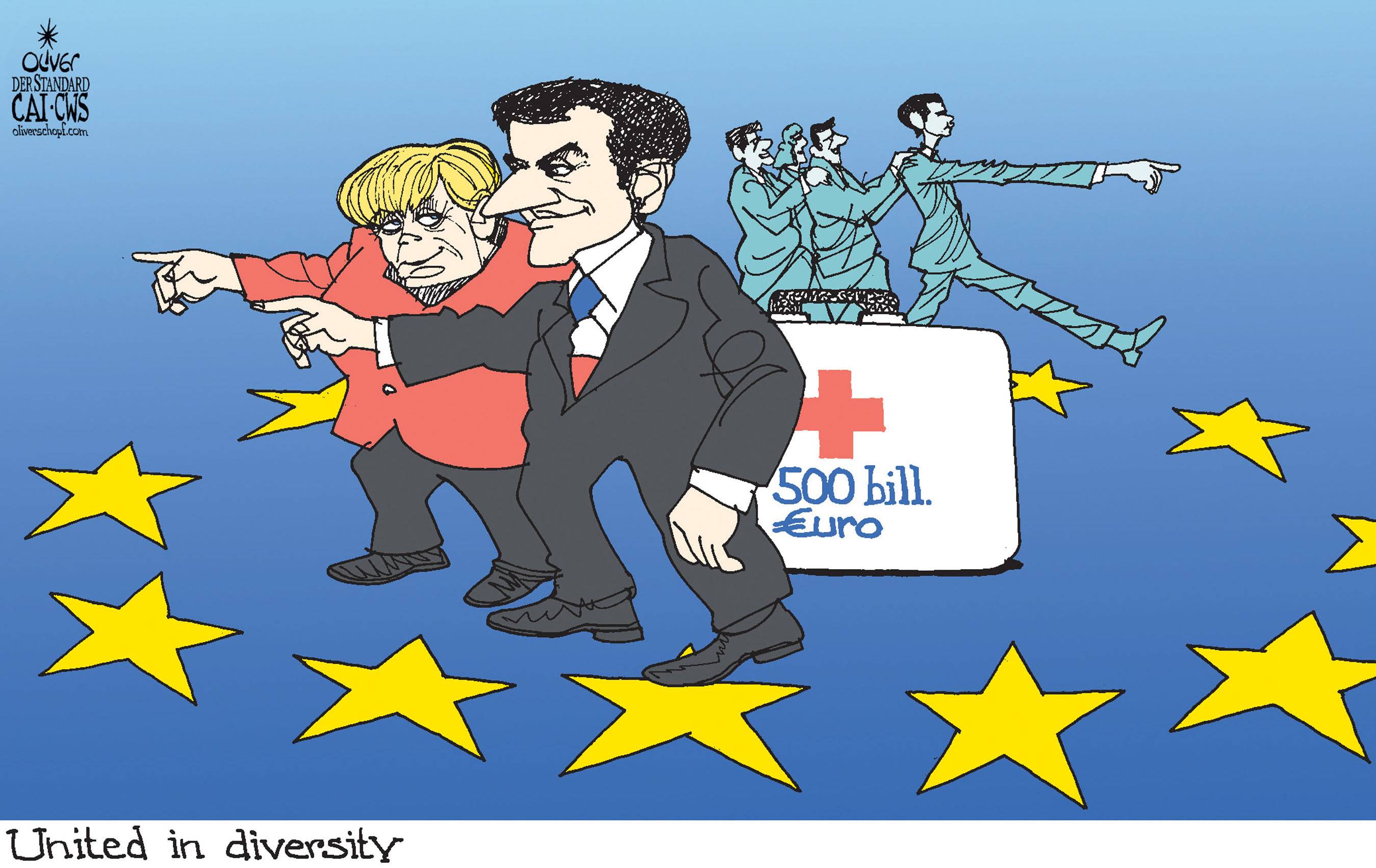With Japan preparing a total of some ¥200 trillion in economic recovery measures in response to the COVID-19 pandemic, and the United States having passed a $2.2 trillion aid bill and considering more, the European Union’s €750 billion ($826 billion) plan to help address the economic crisis looks insignificant in comparison.
Focusing on the financial bottom line misses the point, however: The real significance of the EU proposal is how it will work, and its implications for an institution that has underperformed — and whose very existence has, at times, been threatened — for over a decade. If adopted, the plan could transform the EU from a loose union of countries into a genuine federation of states. There is a long way to go, but if it succeeds, a United States of Europe could emerge from this crisis.
Facing the worst economic crisis in modern history, German Chancellor Angela Merkel and French President Emmanuel Macron last month proposed a €500 billion rescue fund, the monies for which would be raised by the European Commission itself by borrowing on capital markets, and then used as grants to support EU spending rather than loans to national governments. That plan was expanded to €750 billion by European Commission President Ursula von der Leyen; she wants €500 billion to be in the form of grants to struggling countries, and the remainder would be loans with conditions.


















With your current subscription plan you can comment on stories. However, before writing your first comment, please create a display name in the Profile section of your subscriber account page.